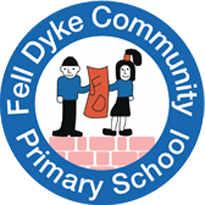Music
Our Aim
The 2014 National Curriculum specifies that music is a universal language that embodies one of the highest forms of creativity. Through the curriculum, our school aims to provide a high-quality music education that engages and inspire pupils to develop a love for music and their talent as musicians. The children at Fell Dyke learn to understand and explore how music is created, produced and communicated. They develop their aural memory through listening, performing, reviewing and evaluating music across a range of historical periods, genres, styles and traditions, including the works of the great composers and musicians. They learn to sing and use their voices, play musical instruments, and compose music on their own and with others. At the heart of our music curriculum, is the aim for pupils to increase their self-confidence, creativity and sense of achievement through musical excellence.
Curriculum Organisation
Throughout Nursery and Reception, the foundations of music are weaved into the children’s daily routine, explicitly taught during focused sessions and explored further through an enhanced learning environment. The Expressive Arts and Design strand of ‘Birth to Five Matters’ is used to support practitioners in planning and delivering an engaging music curriculum, helping children to make progress towards the Early Learning Goals.
Within Key Stage 1 and 2, children use the Gateshead Music Hub Soundwaves and Charanga Musical Schools schemes of work to support their learning. Each term the children revisit and further develop their understanding of the dimensions of music. They can listen and appraise, sing, play instruments, compose and perform. Learning opportunities are often linked by a central song covering a wide variety of genres, styles and historical periods throughout each year group. Knowledge and skills acquired are continually revisited and gradually built upon allowing children to become more confident and competent musicians.
Throughout Key Stage 2, our pupils also enjoy specialist teaching delivered by the local music service, where they learn to play a musical instrument such as the ukulele or recorder. The children’s experiences of music are also enriched through extra-curricular clubs, whole school performances and productions and opportunities to hear and participate in live music sessions.
Knowledge, Progress and Attainment
Children’s progress and development is continuously assessed by teachers and fed back into subsequent planning and teaching of the music curriculum. After completing our music curriculum, the children will have worked with traditional and historical musical pieces, as well as more contemporary pieces including well-known pop songs in a broad range of styles. By the end of Key Stage 2, we expect pupils to have acquired and developed an understanding of how music is created, produced and communicated and have developed their talents as musicians.
